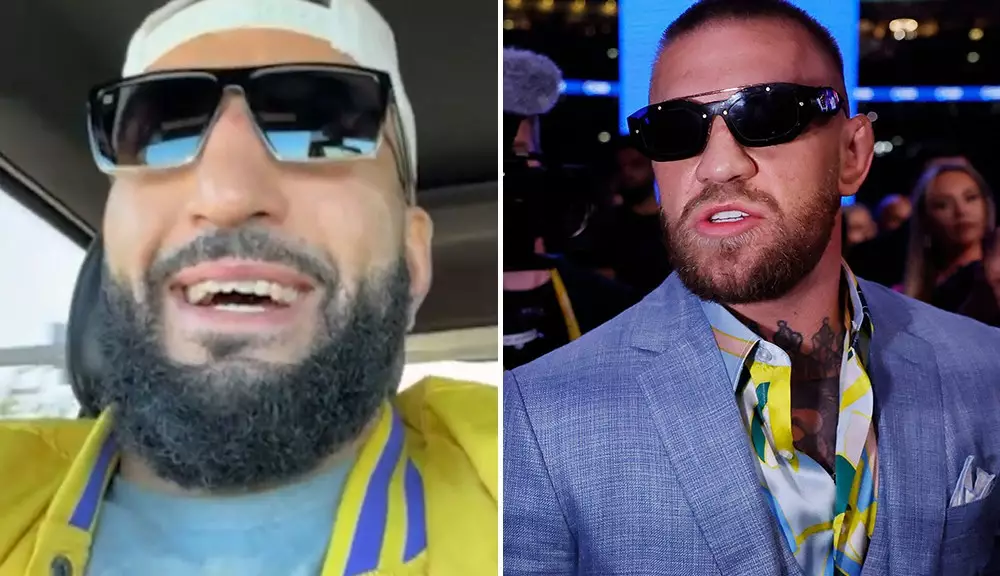In the world of mixed martial arts (MMA), few rivalries capture the imagination quite like those involving Conor McGregor. Once a two-division champion, McGregor’s absence from the Octagon since his leg injury in 2021 has only amplified anticipation for his return. Simultaneously, the emergence of Belal Muhammad as the UFC welterweight champion has shifted the spotlight onto a different narrative. With Muhammad’s recent dominance over Leon Edwards at UFC 304, we witness a contrasting approach to fame, competition, and legacy in the UFC.
Conor McGregor has once again made headlines by disparaging Belal Muhammad’s fighting style via social media. In his now-deleted tweet, McGregor labeled Muhammad as a “bum” with “zero knockdowns” on his record and mocked his drawing power. This outburst, primarily a reflection of McGregor’s penchant for self-promotion, raises questions: Is McGregor genuinely concerned about Muhammad’s rise, or is he merely attempting to reclaim some relevance in a sport that seems to have moved on without him?
Muhammad responded to McGregor’s attack with analysis rather than emotion. He suggested that McGregor’s real issue lies within himself, hinting at a profound realization from the former champion that he is fading from the limelight. Muhammad’s assertion that McGregor might never compete again provides a stark contrast to the Irishman’s flashy persona, suggesting a wrestling match within McGregor between his desire for attention and the reality of his current standing in the sport.
Belal Muhammad, holding a professional MMA record of 24-3 with 15 wins in the UFC, stands at a pivotal moment in his career. On the brink of his first title defense against undefeated Shavkat Rakhmonov at UFC 310, Muhammad appears focused on solidifying his reign rather than engaging with the likes of McGregor. This readiness to face formidable challengers echoes a disciplined fighter’s mindset, emphasizing skill, perseverance, and the pursuit of greatness over mere celebrity antics.
The differences in their current trajectories accentuate two approaches in MMA: Muhammad’s unwavering dedication to his craft versus McGregor’s reliance on self-promotion and theatricality. While McGregor pines for past glories, Muhammad is actively shaping his legacy by tackling tough opponents and establishing his dominance within the welterweight division.
Despite indications from both sides that a future bout seems unlikely, McGregor’s multitude of proposed matchups—including fighters like Michael Chandler and a newfound target in Dan Hooker—remain speculative. Opinions on McGregor’s return oscillate between excitement and skepticism, largely hinging on his ability to recover and reintegrate into a sport that has evolved during his absence. Muhammad’s skepticism about McGregor’s comeback focuses on tangible issues—recovery, rehabilitation, and a potential identity crisis for the once-dominant champion.
There’s speculation that McGregor’s frequent surface appearances at events like BKFC help maintain his relevance, but it raises ethical questions about what it means to be a fighter. Is McGregor more of a character chasing after clout rather than a competitor genuinely committed to the sport?
As the MMA landscape continues to evolve, the contrasts between Belal Muhammad and Conor McGregor become even clearer. While McGregor teeters on the edge of irrelevance, relying on sporadic social media provocation to stay in the headlines, Muhammad diligently focuses on his next challenge—embodying the very spirit of a champion.
Muhammad’s recent remarks serve as a mirror, reflecting not only McGregor’s fading relevance in competitive MMA but also underscoring the importance of dedication and hard work in a sport often colored by chaos and drama. As the sporting world anticipates both fighters’ next steps, it becomes evident that true champions emerge not from social media tirades but from the grit and determination demonstrated in the Octagon.

